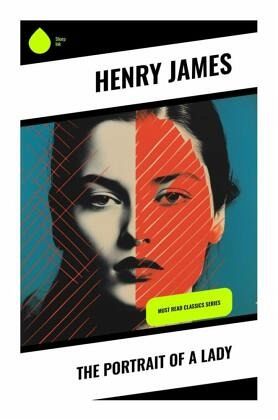
The Portrait of a Lady
Must Read Classics Series
Versandkostenfrei!
Versandfertig in 6-10 Tagen
18,20 €
inkl. MwSt.

PAYBACK Punkte
0 °P sammeln!
Henry James's "The Portrait of a Lady" is a masterful exploration of the complexities of personal freedom and the burdens of identity in the late 19th century. Written in a rich, nuanced style, the novel employs a psychological realism that delves deep into the inner lives of its characters, particularly the spirited Isabel Archer. Set against the contrasting landscapes of Europe and America, James intricately weaves themes of social ambition, moral choices, and the often suffocating constraints of society, ultimately leading to Isabel's poignant realization of the sacrifices imposed by her pu...
Henry James's "The Portrait of a Lady" is a masterful exploration of the complexities of personal freedom and the burdens of identity in the late 19th century. Written in a rich, nuanced style, the novel employs a psychological realism that delves deep into the inner lives of its characters, particularly the spirited Isabel Archer. Set against the contrasting landscapes of Europe and America, James intricately weaves themes of social ambition, moral choices, and the often suffocating constraints of society, ultimately leading to Isabel's poignant realization of the sacrifices imposed by her pursuit of independence. Henry James, an American expatriate, was profoundly influenced by his experiences in both America and Europe, which is evident in his vivid portrayal of cultural contrasts. His keen observations of societal norms and his belief in the individual's quest for autonomy inform the narrative's tension and complexity. Drawn from his own struggles with identity and relationships, James crafts characters that resonate with the struggle between personal desires and societal expectations, making Isabel Archer a timeless figure of feminist literature. "The Portrait of a Lady" is an essential read for those seeking a deep, reflective examination of freedom and self-discovery. Its intricate character studies and philosophical underpinnings invite readers to engage with the moral dilemmas faced by the protagonist, making it a landmark novel that continues to inspire and challenge our understanding of personal agency in a restrictive world.












